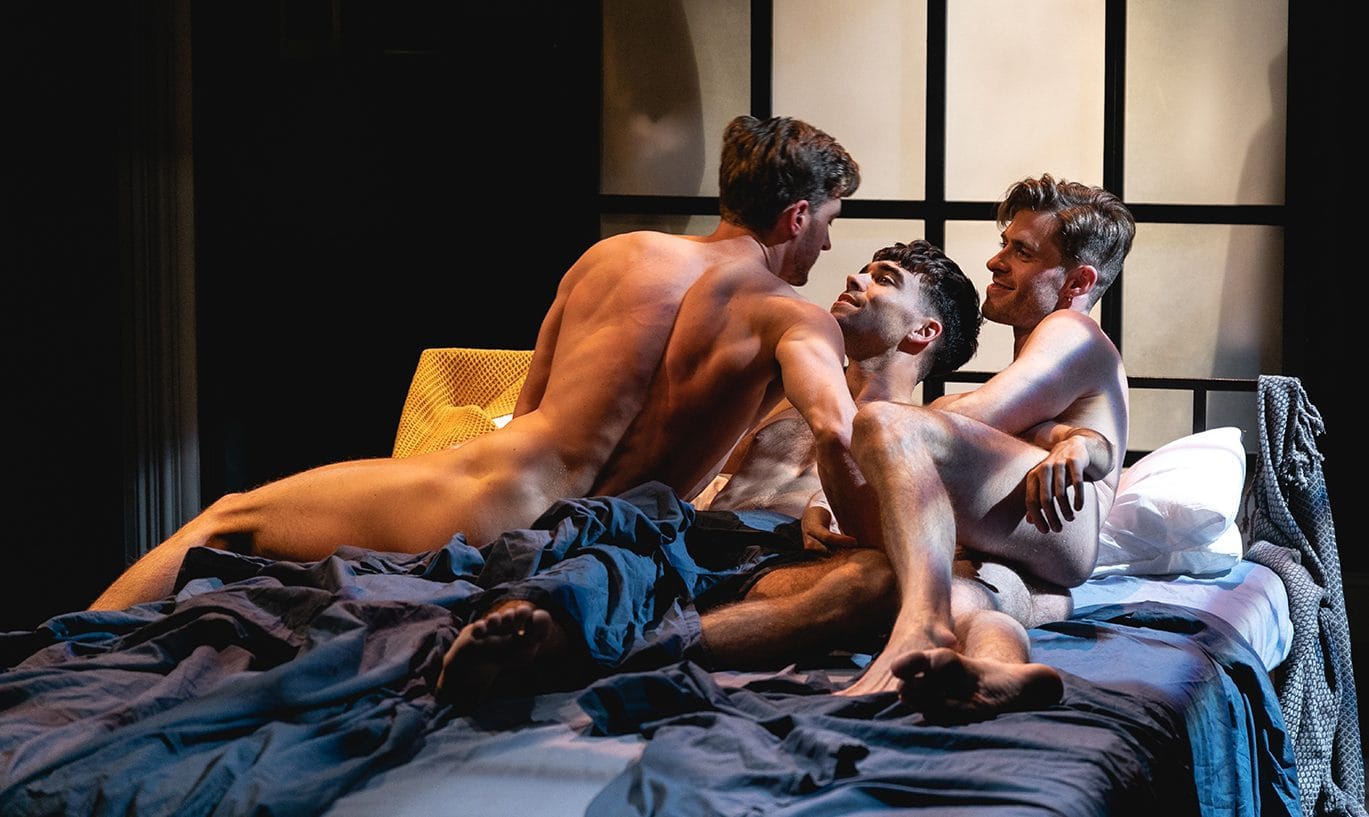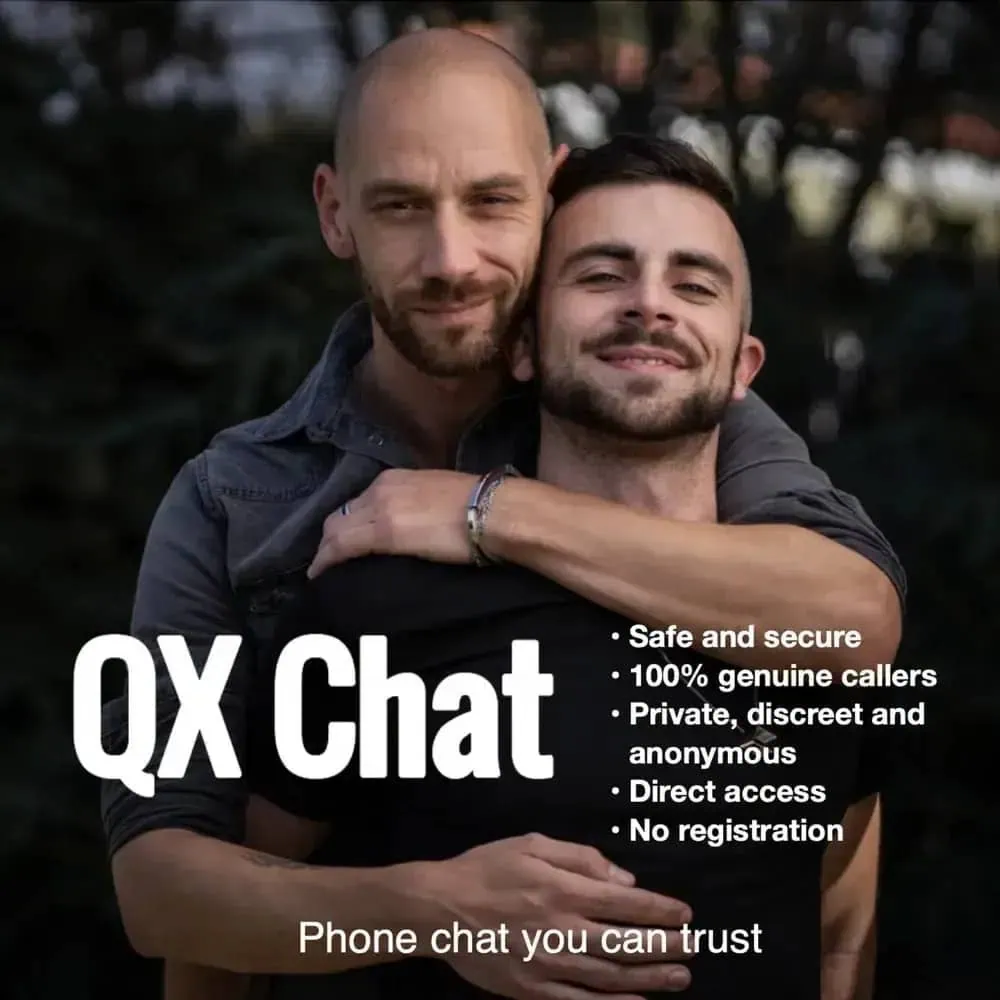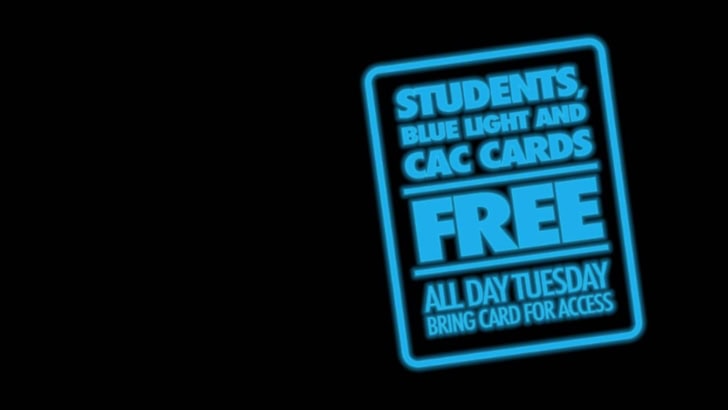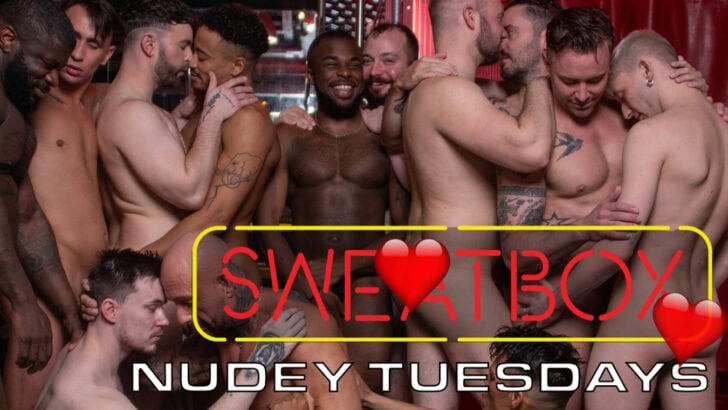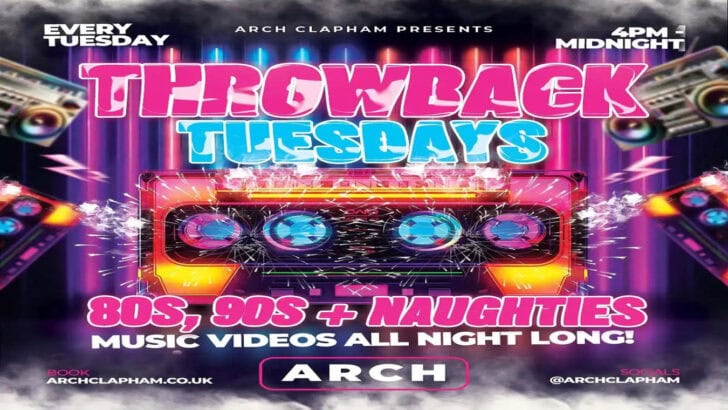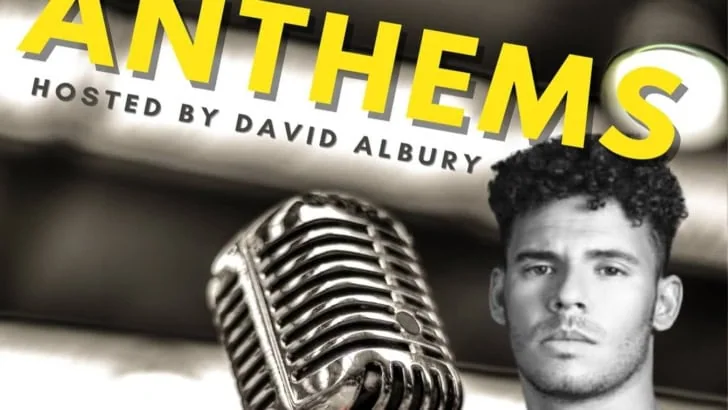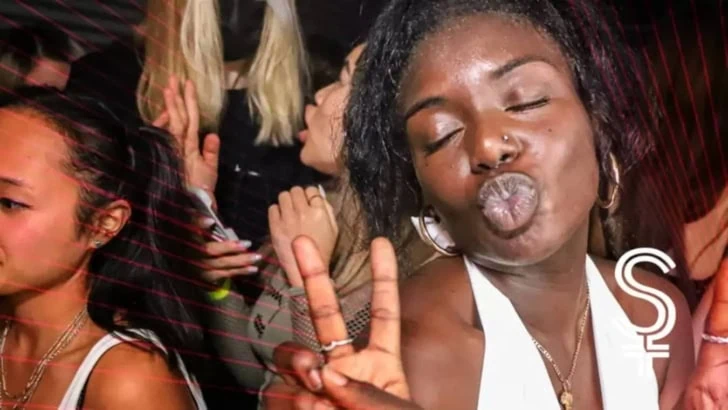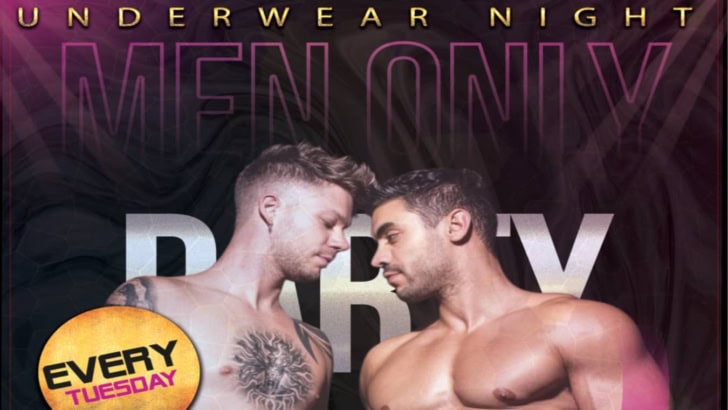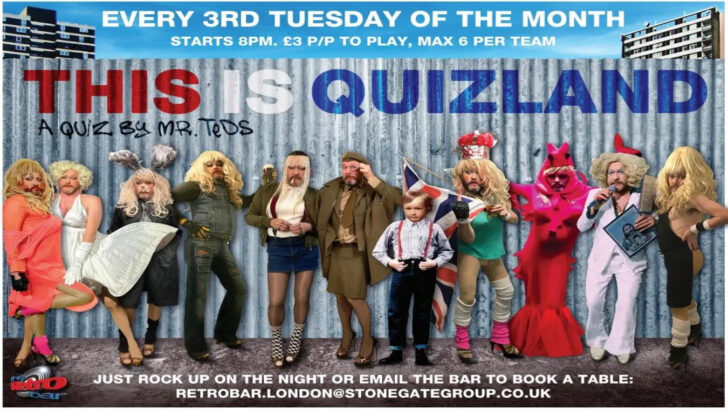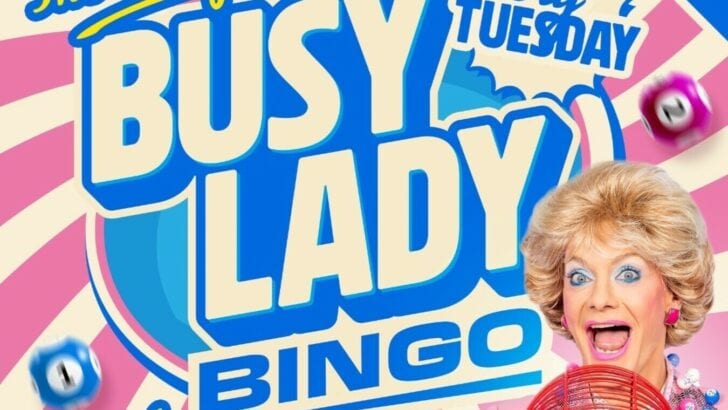We speak to the cast of gay polyamory play, Afterglow
Despite a growing conversation around open relationships, monogamy is still the cultural norm. Our major institutions are all geared towards two people being coupled up exclusively, and anything that diverges from that is perceived to be some strange fringe minority. When it comes to gay men though, that isn’t so much the case. In a survey conducted by GMFA’s FS Magazine found that 41% of the gay men who responded had been in an open relationship at some point in their lives, and a 2006 study also revealed a similar statistic in gay couples compared to the 5% of straight couples that were open.
In order to explore this subject, we caught up the cast of the show bringing the dynamics of an open marriage to the London stage. Having enjoyed a multiple-extended run Off-Broadway and boasting excessive nudity, S. Asher Gelman’s Afterglow is making its way to the British capital. It follows Josh (Sean Hart) and Alex (Danny Mahoney), a high-achieving married couple living in Manhattan, as they invite Darius (Jesse Fox) to join them for a one-night ménage à trois. Sitting down with Sean (S), Danny (D) and Jesse (J), we got to talking about the fundamentals of a non-monogamous relationship, and why it is that so many gay men are exploring it as an option.
Theatre predominantly features monogamous couples. Do you think find there’s a difference in portraying an open dynamic?
S: It’s a great unknown compared to the stories we’re used to seeing. There aren’t many versions of what that looks like. You’re discovering it as you go on, especially if someone becomes a bit more involved than just sex. A lot of this play is about the married couple navigating that. I’ve never been in an open relationship before, I have been involved the other way around, but it’s a learning experience for me as it is for the characters.
D: Whenever I’ve spoken with friends who are in an open relationship, my main question is always “How does that Work?” because I’ve never done it, I don’t understand how they could make that work. We are having to find how these characters think and feel about it.
Is it something you actually are learning to understand?
D: Yes and no. In the story it does get messy. I’m still in a bit of grey area about it.
S: This is the thing about relationships. Yes it is a version of what a relationship is, but two completely different people are going to have a completely different experience of what that is. The rules they decide to place create a different type of relationship. I’m experiencing it through a character, and it’s absolutely not how I would behave. It’s not one formula that everyone you know in an open relationship is behaving by, it’s a new set of rules.
D: We’ve been talking about how communication is essential, and looking from the outside in, it doesn’t seem that our characters have put in those rules and controls, but saying that it’s human nature. You can’t control it. You can’t control emotions.
The role of the guest star in a threesome is one that many of us would feel more comfortable engaging in. Why do think that is?
J: My experience of being in these situations, you’re being led. My character Darius sees this more mature married couple who are accomplished professionally, and he looks up to them, and trusts them despite a few initial reservations. They’re almost like teachers telling him “this can work”. The play has made me think about those questions about open relationships which I also have never done and it feels quite scary to me. Being mature about the sex and urges everyone has after being with someone for a long time is actually amazing. As a guest star, there’s less pressure. You’re coming in from the outside and responding to an existing dynamic. If the rules aren’t clearly defined, it’s not your responsibility to define them.

S: I’m a similar age to this character, and only really recently am I starting to understand that my age is not simply being younger than other people. As I’ve gotten older my responsibilities sexually and emotionally are different in relationships to what they use to be, and there’s a certain amount of passing down wisdom, without getting all greek about it. You’re engaging with people who are younger than you all of the sudden. It’s maybe less about age and more about roles; how one gives care and how that adjusts as you become older.
Are we good at taking care of each other as gay men?
D: It depends on the individual, you can’t really generalise. I’ve seen both sides. There’s a lot of wanting to protect the self, so therefore there is that element of protecting yourself by pushing others away.
J: In this play the characters are making a real effort to take care of each other.
S: Grindr for example, is a wonder opportunity for you to explore many different things about being a gay man, those things can be wonderful and those things can be destructive. Sometimes you want to be destructive.
Statistically it is gay men that largely open up their relationships. Why do you think that is?
S: I guess when you are a gay person, you grow up understanding the world wasn’t built for you. It’s inherently part of being not “normal”. You know that no rules are really 100% correct, so when it comes to having relationships if you consider yourself to be different you can see that everything can be different. Everything can be queered. It can be to do with understanding your sexual appetite, but also that the rules around relationships weren’t designed for you anyway.
D: The moment we’re born we’re fed this ideal of man, woman, they marry, they have a family. And that that’s the convention we should aspire to. Gay men and gay women don’t have that conventional life. If all of us weren’t fed that, would straight couples have more open relationships? I don’t know. Also typically straight couples have children, and gay couples until recently didn’t. Having a child and a family is what creates a different dynamic that gay couples don’t have.
J: To make a sweeping generalisation, biologically there are schools of thought that men and women relate differently to sex. Child bearing and child rearing being part of that responsibility, women fall pregnant then carry that child for nine months, in purely animal terms. That’s still a pressure society puts on women. As a man we’re wired differently, biologically, reproductively, societally, our role in that as a process means he can just enjoy sex, spreading his seed around. Sounds a bit crass but I think that’s in there somewhere.

J: That’s why my character looks up to them. They’re doing that and maintaining this element of the open relationship. On the surface it looks like they’ve got it all. They’ve moved beyond the heteronormative couple.
D: It’s interesting to think of what will happen when the child arrives. Would they close their relationship up again? I don’t know any gay couples that have a child and are in an open relationship, it doesn’t mean that they don’t exist, but I’ve never come across it.
S: You don’t want to have an orgy with a screaming baby in the other room. Not sexy.
Are we seeing a cultural shift towards non-monogamous relationships?
D: Where we are now compared to 20-30 years ago, everyone’s just more open to sex, where it used to be very taboo.
J: We’re more sexually liberated as a society now. Sex is sex, and sex is fun. I think it’s so dependant on the dynamic, it’s an idea in the culture now that people can look at being something others do successfully. We like to think we’re good at being open, but casual sex depends on the two or three people engaging in it. So much of it is about sharing, and adults aren’t as good at it as they think they are. Sharing’s always hard.
So this play has a whole bunch of nudity, like a LOT. How are we feeling about that?
S: There’s a lot of sex in the play. Sex involves nudity.
J: Getting naked in front of 230 people a night is only a bit worse than getting naked in front of a stranger in your room. When we did it in the room for the first time, it just didn’t feel like a big deal. We all accepted the job, we’re all on board with it. It was quite funny when we did it for the first time, I thought that it was really funny. Just a room full of flaccid penises. It’s weird and scary, and British people are particularly bad at that.
D: Sex is what instigates everything in the play. There is that question of throwing it in the audience’s face or being a little more ashamed of it. If we didn’t do the nudity, it would be a bigger statement.
S: They’re just cocks. Same as hands. They’re there. Half the world has one.
Just cocks. Too right. You can catch Afterglow at The Southwark Playhouse, Elephant and Castle SE1 6BD until the 20th of July. Tickets available at SouthwarkPlayhouse.co.uk.
